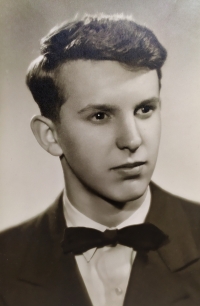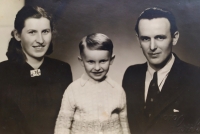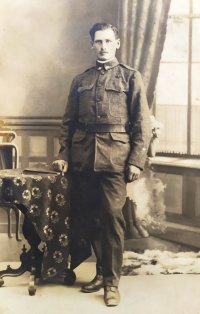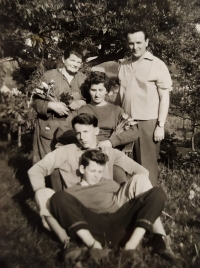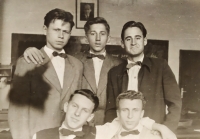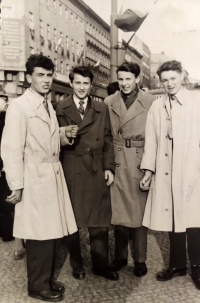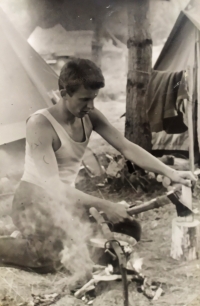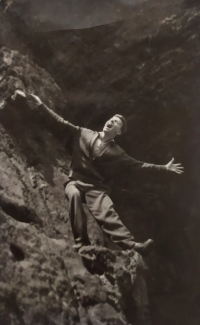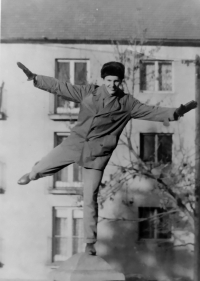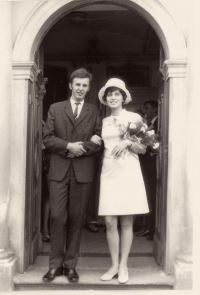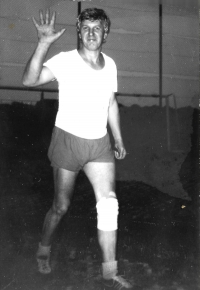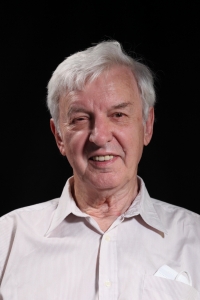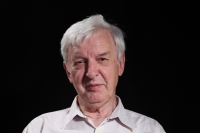I would understand if the Secret police managed to break my dad. He kept thinking about his unfortunate friend Oppelt

Download image
Jiří Kaštánek was born on 4 January 1940 in Zlín. His father worked as an electrician in Baťa’s factory, his mother as a shop assistant. At the end of the Second World War, Petr Kaštánek experienced air raids by the anti-Nazi Allies on Zlín. His father was brought home on a stretcher as he was fighting fire at the power plant after one of these raids. After the liberation of Zlín, he and other children were given American chewing gums and chocolates from the Soviet soldiers. They were throwing them out of moving cars. In the autumn of 1945, the family moved to Ústí nad Labem into a luxury apartment inherited from the Sudeten Germans. His father was in the electrical goods business and he prospered. However after the communist takeover in February 1948, he lost five shops and was hiding from the communists for some time. His friend Oppelt, a Jewish textile merchant, who survived the Nazi concentration camps, ended up in a police cell after the communists took power. Soon his wife was brought his bloodied clothes and told that he had been shot on the run. Jiří’s father went into hiding in the countryside for several months, then returned home. After 1989, Jiří learned that his father had collaborated with the communist secret police. But he never blamed him, because he knew how their Jewish friend Oppelt, a similarly successful businessman like his father, had turned out. In the late 1960s, Jiří Kaštánek joined the Emil František Burian Theatre as a lighting technician, he stayed for 23 years there. There he experienced the Prague Spring of 1968, the Occupation of Czechoslovakia by the Warsaw Pact troops, the Normalisation in the 1970s and the Velvet Revolution. In 1969, he worked as a lighting technician on the acclaimed film The Cremator (Spalovač mrtvol). After 1989, he worked as a lighting technician at the State Opera and the Drama Club. At the Vinohrady Theatre he lit the famous musical Les Misérables. In 2021, he lived in the Lounsko region and devoted himself to beekeeping. The recording of the witness was supported by the Statutory City of Ústí nad Labem.
